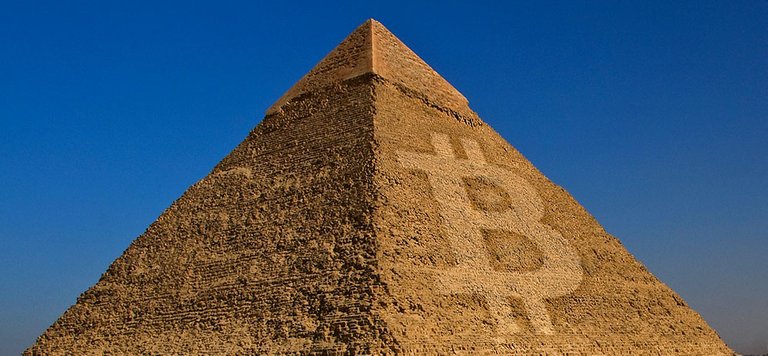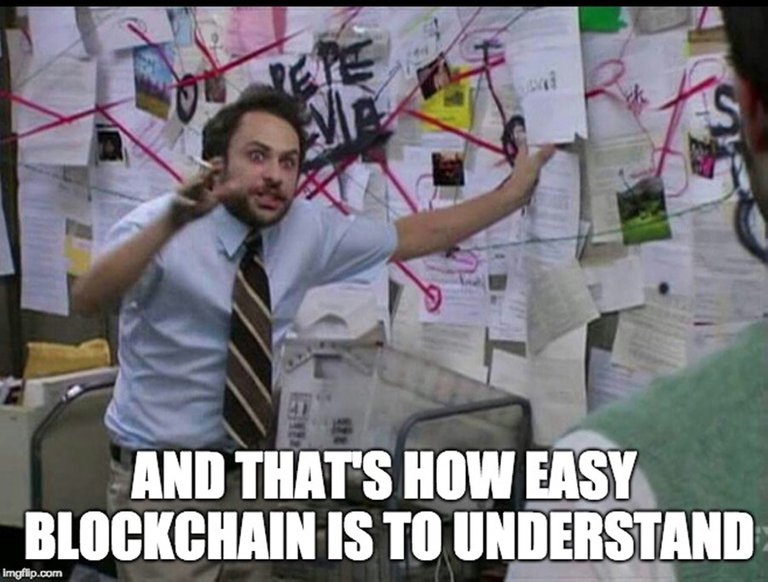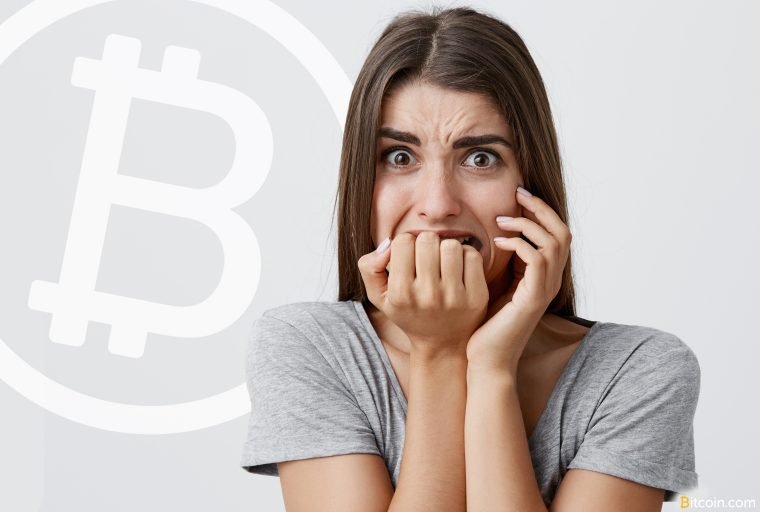
A pyramid scheme is a business model that allows a certain company or asset to stay afloat by recruiting more members who are fed with false promises of sky-high returns. However, only early participants and investors are able to make money with such frauds.
Many sceptics believe that cryptocurrency is nothing more than a giant pyramid scheme. Shouting from the rooftops that you could only become rich based on the number of people that join the market after you.

As a precious metals junky myself, I do follow and listen to Peter Schiff. Not heard of Peter Schiff?? He's the CEO of Euro Pacific Capital, and is a massive "goldbug". He has been calling cryptocurrency and more specifically Bitcoin "a Ponzi" that is running out buyers for a very long time. The prominent gold enthusiast claims that the price growth of Bitcoin and others is only attributed to whales manipulating the market.

This is where mine and his opinions differ. While I still think precious metals will always be money, I believe that blockchain technology and cryptocurrency has a future, and that 2020 could possibly be the year when mass adoption is finally achieved.

I think the trouble with blockchain technology is the fear that it is complicated and impossible to understand, but once you break it down, it's concept is very simple and perfect for everyday use.
A few years ago, blockchain technology, also called digital ledger technology (DLT), was going to be the next big thing!! It promised to transform every facet of our lives, including the entire global payment system (which is where bitcoin comes in). The hype was immense.
So what exactly is this technology?
At its simplest, a blockchain is a ledger and a way of storing information. Crucially, where a normal database is a single, centrally controlled entity, a blockchain is a public “distributed ledger”.Every computer that has access to the chain has its own copy of the blockchain.
Think of it as a chain of blocks of information. As a new piece of information is added to the ledger (chain), it creates a new block in the chain. This makes ALL existing data impossible to change once its been added. Each individual block is a store of information. Not only do blocks store information, but also stores who added the information and who has access to it.
Once a block has been added to the chain and its content verified, it is given a “hash”. A "hash" is a unique, immutable code that identifies that transaction. You cannot go back and change any of the information stored on that block. Any changes are recorded as new blocks in the chain with a record of who has done what.

This ability makes blockchain technology perfect for use in "smart contracts".
Smart contracts??
In a nutshell, a smart contract is computer code stored on the chain that can execute transactions between parties once certain conditions have been met.
For example:
A smart contract can be used to automatically transfer the ownership of property once funds have cleared.
In essence a smart contracts cut out the need for a middleman as the blockchain acts as a irrefutable evidence of completion.
Can you imagine a world where you don't need banks to transfer money or solicitors to exchange contracts?? This new technology has institutions that have had us on our knees for years quaking in their boots.

It is the blockchains security, and the fact that all parties have access to the information so that there is no need for a middleman, that makes blockchains so useful.
What is clear is that, for good or bad, blockchain is no longer the brash shouty new kid on the block. It may soon become mainstream as it finally matures. Slowly but surely distributed ledger technology is integrating itself with public and private systems and it’s most definitely here to stay.

Welcome to Steemleo.
✍🏼 Write on.
"Things can be permanent on the internet" used to be a threat, now its an offer.
Good Job friend
Good stuff @welshstacker! There is a series of six short videos on youtube called DASH School that helped me understand blockchain a couple of years ago that I would highly recommend to anyone. I even showed them to my kids! They are DASH related but do explain blockchain in general quite well, in my opinion.
Here is the first one.